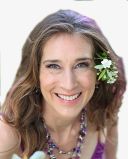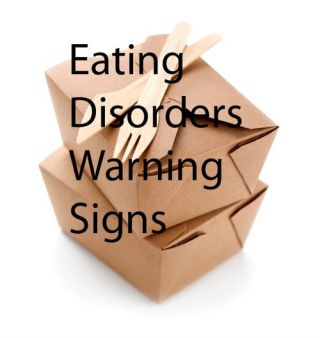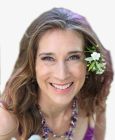
Eating Disorders
Healing From My Eating Disorder
True Confessions from a Food Psychologist and Researcher
Posted January 30, 2014
Like many who suffer from body dissatisfaction, my journey into dieting began not with an active weight loss attempt, but with what we know as “food rules.” No eating after 7:00 pm. No red meat because it's 'bad' for you with its higher fat content and link to cancer. No bread with its empty calories. No high calorie sugary treats - or if you do indulge - exercise a little extra to work off the calories.
The problem is that these food rules became increasingly restrictive. They were easy to justify in a mind ruled by disordered eating thoughts and beliefs. No red meat turned into no meat at all. Then no fish. Then, finally, no animal products. No bread turned into no products containing gluten. Then no processed foods. Again, in my mind, all of this was justifiable as the food products I was giving up were bad for you, or at the very least less healthy than whole, unprocessed food.
Before I knew it, I was vegan and gluten free and feeling quite superior about my eating habits. There’s actually a name from that type of thinking. It's called orthorexia nervosa - "a pathological fixation on eating "proper" or "pure" or "superior" food.” But veggies and fruit don't have a lot of calories. So the weight came off. At first I was praised for my thinness - I still am for the most part.
Then the whispers and concerns started. I started hearing things like, “You look anorexic, gaunt.” I blew off the concerns of my friends and family. I convinced myself that they didn't know what they were talking about and were jealous of my superior eating skills and self-restraint. Until two weeks ago.
Sometimes the universe conspires to make you realize a truth you've been suppressing for too long. After all, I’m the disordered eating researcher. I don't have a problem myself. I merely study the factors contributing to disordered eating. I help others who have these problems. Because I know what I’m doing – or so I thought. I was in denial for 23 years.
Until I got called on it by a friend who happens to be a therapist two weeks ago. “You need to gain 20 pounds,” he said. “I've see how much you eat. Have you told anyone about your eating disorder?”
“My what?” I replied, shocked. “I don't have an eating disorder.” His response? “Yes, you do.” I denied it, fought him about it, and finally, realized he was right.
All of those people who have expressed concern about my weight over the years? They were right. I am a disordered eating researcher. I've been studying dieting, body dissatisfaction, and disordered eating and exercise behaviors for 16 years. Before that I studied ineffective coping skills - like using food and exercise to cope. I have published numerous articles and book chapters. I am writing a book on the subject. I teach the Psychology of Eating, educating my students about all the warning

signs: the food restrictions, the exercise to compensate for calories eaten, orthorexia nervosa, becoming vegan or vegetarian telling people you’re doing it for “health” or “moral” reasons when you’re really doing it to lose weight, fear of gaining weight, cutting oneself off from family and friends who make remarks about your weight. I’ve taught these topics for years. Counseled students who were suffering. Never wanting to admit to myself that I had all the signs.
My name is Mary and I have an eating disorder. They say we study what we most need to learn ourselves, and until a week and a half ago I was in denial about this simple fact. But now I'm coming clean. Eyes open, I am confessing my problem. I've put together my team - a registered dietician, health coach, therapist, and psychiatrist. You see, I want to beat this. It's been 23 years. I think I've fought the battle long enough, don't you?
I tell you this not to ask for your understanding or pity, but to hopefully inspire you to take a good long look at your warnings signs. The food rules, the restrictions you place on yourself, the body dissatisfaction and dysmorphia. If you see yourself in my story, please get help. You're in the right place.
In the meantime, I am finally getting the help I need and will discuss my journey mingled with the usual tips and research findings you’re used to right here on the blog.
Until next time. Be healthy, be happy, eat.



